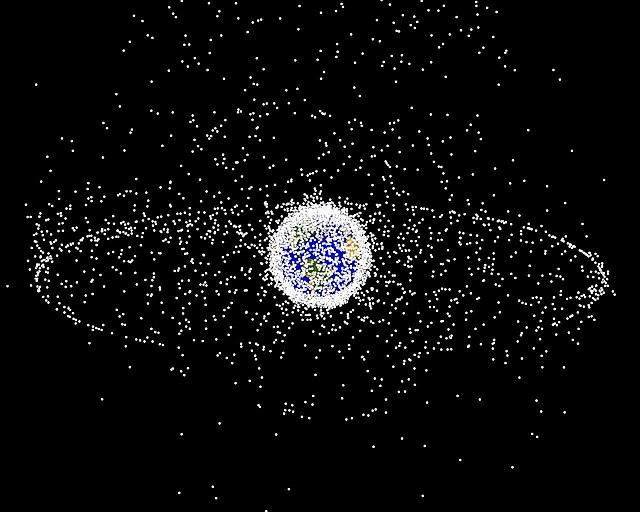The garbage we produce has spread to many corners of the world, including Mount Everest and the Amazon Rainforest. Even the North and South Poles are not spared.
Fortunately, humans are finally learning to take responsibility for their actions, to separate and recycle their waste. However, though few pay to attention to it, there is an extremely hazardous type of garbage that almost never gets our attention—space junk.
Space junk, also known as space debris, are man-made objects in cosmic space other than working spacecraft. Generated during the launch of vehicles and spacecraft, solid and liquid materials escape from scrapped satellites and spacecraft launched by governments and private companies.
At this stage, lacking effective means to recycle or dispose of space debris, Many communications companies are cold-treating their end-of-life satellites without providing additional compensation measures. Many countries lack relevant control and punishment mechanisms.
On October 2, the U.S. government issued its inaugural fine for space debris. The Federal Communications Commission (FCC) charged Dish Network approximately $150,000 for their defunct EchoStar-7 satellite, which disrupted the functionality of other satellites in Earth’s orbit.
Although the $150,000 fine represents a small portion of Dish Network’s $16.7 billion in revenues in 2022, it is a historic beginning for the government to take notice and regulate the disposal of space debris. Loyaan Egal, Director of the FCC’s Enforcement Bureau, said, “With the growing popularity of the satellite business and the accelerating growth of the space economy, it is important that we ensure that carriers honor their commitments.”
Unfortunately, this fine is just the beginning of a long journey to remediate space junk. According to NASA, there are currently more than 25,000 pieces of space debris longer than 10 centimeters floating in space. If we don’t start acting now, there are likely to be serious consequences.
Space junk generally moves at high speeds of 7-8 kilometers per second in near-Earth orbit at a height of 300-450 kilometers, and therefore has enormous destructive power. If it collides with an operating artificial satellite, manned spacecraft or the International Space Station, it will jeopardize the equipment and even the lives of the astronauts. A piece of space junk weighing 10 grams hitting a satellite is equivalent to two 100km/h cars colliding with each other. The satellite will be pierced or directly destroyed within 1.5 seconds.
What is even more troublesome is the “avalanche effect” – each collision of space junk will not annihilate them, but will disintegrate to produce more debris. If the active removal is not carried out, the amount of space junk will grow on its own.
In order to prevent irreversible disasters from occurring, countries should start paying attention to space hygiene. They should study ways to limit and eliminate the generation of space debris. Okayama Prefecture on Honshu Island has activated a remote-controlled radar dedicated to tracking space junk, while Russian researchers have designed a new type of space debris tugboat by combining two types of tugboat movements. The related research results have been published in the Astronautical Journal.
As humankind’s enthusiasm for space exploration grows, it becomes increasingly important for us to address the generation and mitigation of space debris.
The current fines imposed in the United States highlight that the government is prepared to address this challenge, serving as a wake-up call for all of us. Genuine concern and proactive measures are vital to resolving this issue. As we journey through the vastness of space, our quest for pollution-free exploration remains paramount





















































